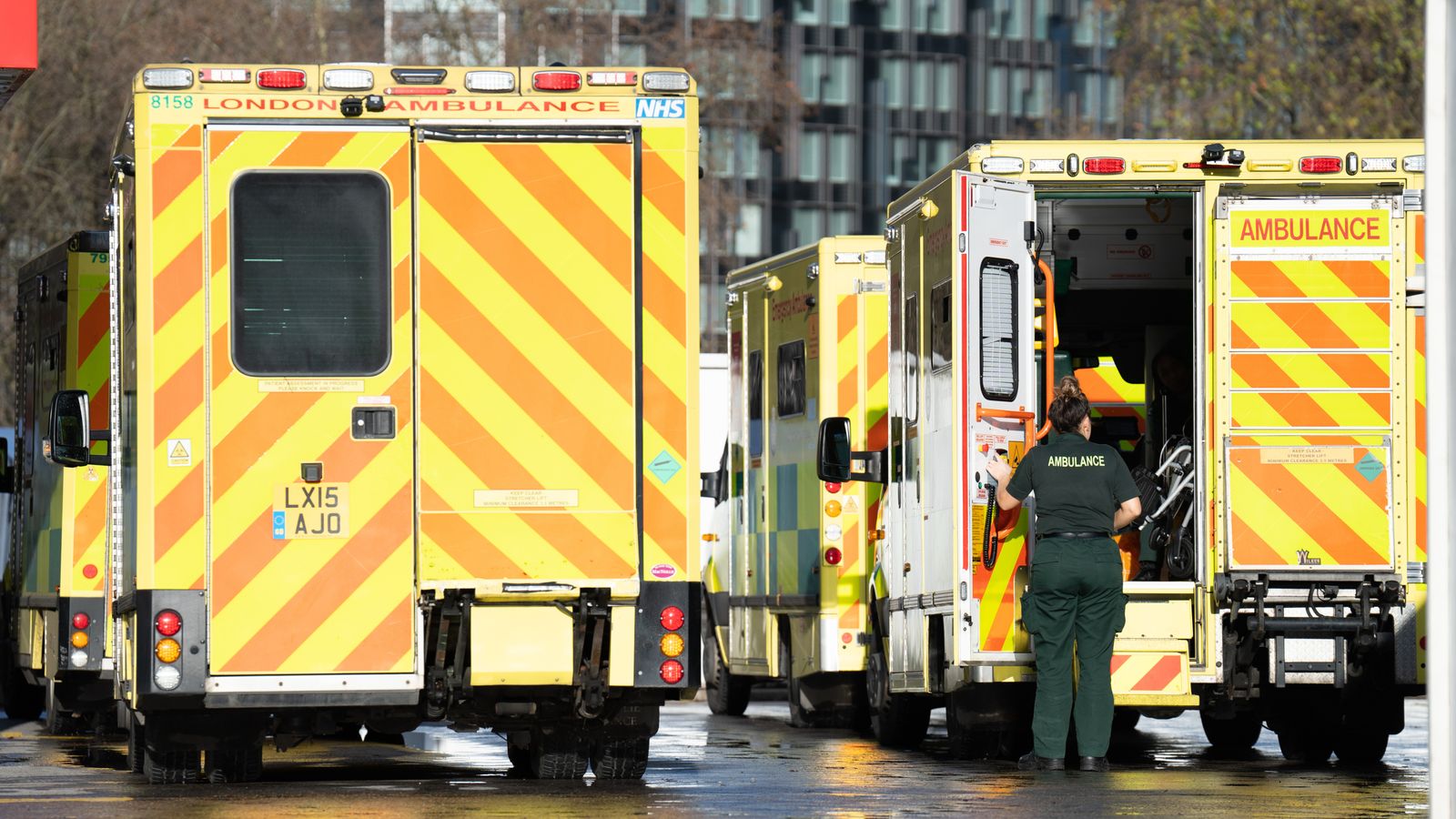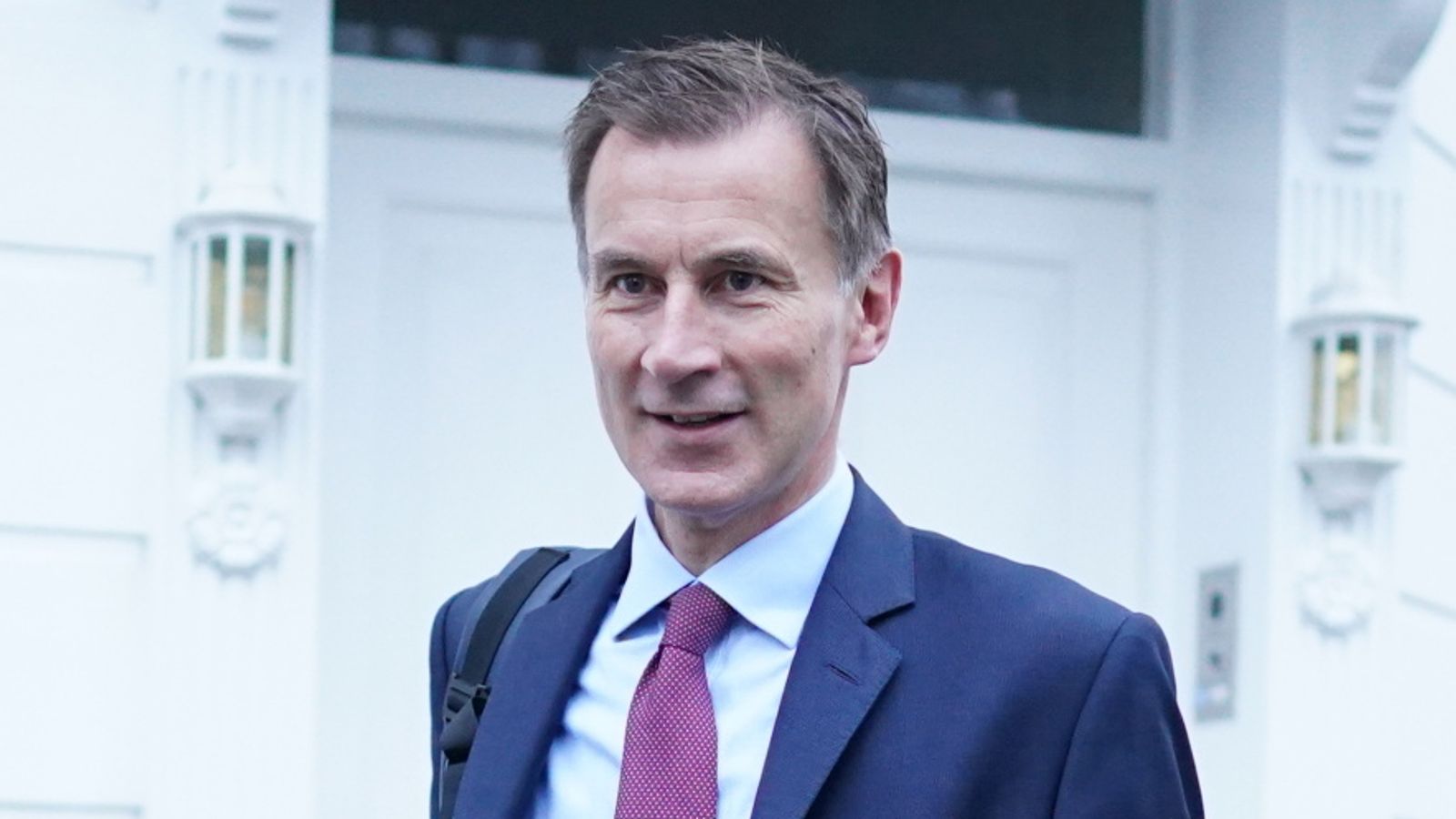The first deportation flight due to take asylum seekers to Rwanda will not be taking off tonight following a series of last-minute legal appeals, the Home Office has confirmed.
A Home Office source said the plane, which was stood ready on a Ministry of Defence runway at Boscombe Down in Amesbury, would not be departing due to “last minute interventions from the European Court of Human Rights”.
Earlier this evening, it was confirmed that two individuals due to be sent to the east African country had had their exit from the UK postponed following last-ditch measures by lawyers.
Johnson hints UK could withdraw from European Convention on Human Rights – Politics news live
It was understood that the European Court, which granted an urgent interim measure blocking the removal of one Iraqi detainee who was due to be deported, was considering a number of further requests.
A total of seven individuals were believed to have been due to board the flight before the successful interventions were made.
Challenges by four asylum seekers due to be on the plane were rejected by UK courts earlier.
A fifth man lost a bid to bring an appeal at the Supreme Court after a panel of three justices refused him permission to challenge the Court of Appeal’s ruling that the flight to Rwanda could go ahead.
This rejected an appeal by two refugee charities and the Public and Commercial Services union.
Giving brief reasons for the decision, the court’s president, Lord Reed, said there had been an “assurance” that, if the government’s policy of removing asylum seekers to Rwanda is found to be unlawful, steps would be taken to bring back any migrants flown to the east African nation in the interim.
Rwanda policy condemned as ‘immoral’
The plan to send individuals to Rwanda has been contested in the courts and condemned by the Church of England’s senior bishops as “an immoral policy”.
But Prime Minister Boris Johnson has maintained that the policy’s aim is “to support safe and legal routes for people to come to the UK and to oppose the illegal and dangerous routes”.
The PM told broadcasters on Tuesday that the programme “may take a while to get working properly, but that doesn’t mean we’re not going to keep going”.
Asked if it would be necessary to pull out of the European Convention of Human Rights to restrict legal challenges, Mr Johnson added: “Will it be necessary to change some laws to help us as we go along? It may very well be and all these options are under constant review.”
Stop Deportations protesters had earlier taken direct action to resist the first deportation flight, locking themselves together with metal pipes and blockading exits of Colnbrook Immigration Removal Centre at Heathrow where the remaining people the Home Office intended to put on the plane were believed to be being held.
PM pledges to ‘keep going’ with Rwanda policy
The PA news agency has reported that it is understood that at the present time, there is not a route for the Home Office to appeal against the decision.
Responding to the flight being halted, Refugee Council chief executive Enver Solomon said: “The fact that the final flight could not take off is indicative of the inhumanity of the plan and the government’s complete refusal to see the face behind the case.
“Those threatened with removal are people who have escaped war, persecution, torture, and violence – many of whom have only been prevented from flying due to individual legal interventions declaring it a clear breach of their human rights to do so.”
Mr Solomon continued: “The government must immediately rethink by having a grown-up conversation with France and the EU about sharing responsibility and look to operating an orderly, humane, and fair asylum system.”
Mark Serwotka, general secretary of the Public and Commercial Services union, added: “We’re pleased the courts have ruled to stop this flight.
“It’s time for the government to stop this inhumane policy which is the basest of gesture politics and start to engage seriously with sorting out the asylum system so those who come to our country seeking refuge are treated fairly and according to the law.”
While the Mayor of London Sadiq Khan tweeted: “Sending people fleeing violence to a country thousands of miles away was already cruel and callous. It’s now potentially unlawful too.”
Government urged to ‘immediately rethink’ deportation plans
The four potential deportees who today lost High Court bids earlier to avoid being put on the plane include:
• an Iraqi Kurd who had suffered PTSD in Turkey while travelling to the UK and had brought a claim asking not to be removed due to his mental health and his relationship with his sister, who lives in the UK
• a Vietnamese man who claimed to have received death threats from loan sharks in Vietnam who was also denied after the judge rejected an argument that he was denied translation services
• a man who travelled to the UK from Iran with his 21-year-old son and had asked the court to prevent his removal due to his mental health and a right to a family life
• an application by a Kurdish man who was also refused permission to appeal.
A failed High Court and Court of Appeal legal challenge brought by groups including Care4Calais to the first flight under the Rwanda scheme put the cost of the deportation at £500,000.
The government has rejected this figure, but it is believed the the cost of the flight would have been hundreds of thousands of pounds.
Downing Street said the current approach costs the UK taxpayer £1.5 billion every year already, with almost £5 million a day accommodating asylum seekers in hotels.
Last year, more than 28,000 people crossed the Channel in small boats – more than three times the number seen in 2020.
More than half were either Iranian or Iraqi, with people from Eritrea and Syria also making crossings, according to Home Office figures.




